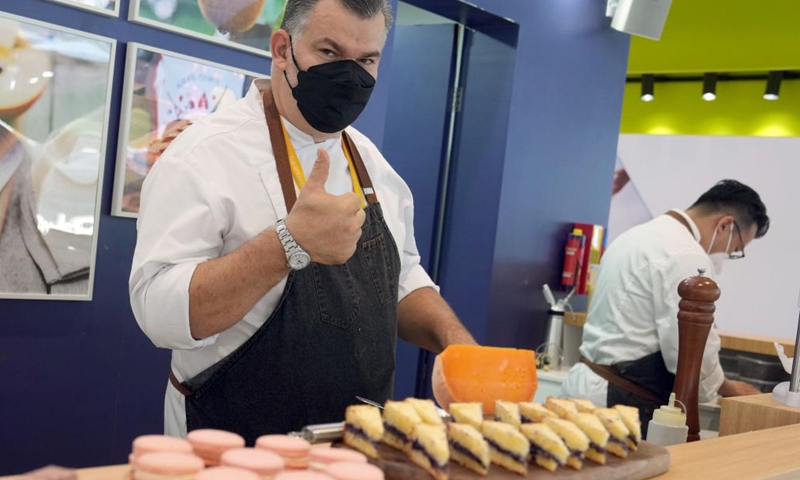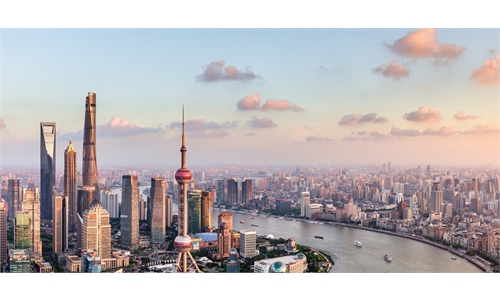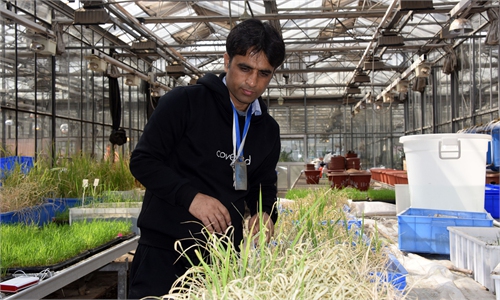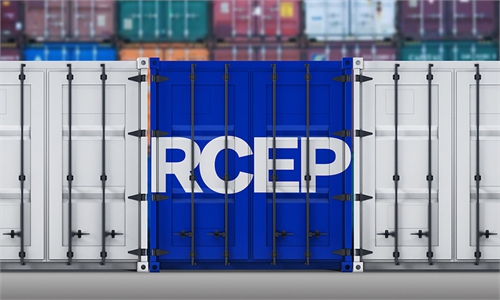Foreign chambers in China welcome optimized COVID-19 response
Foreign chambers in China welcome optimized response measures

A staff member shows desserts at the fifth China International Import Expo (CIIE) in east China's Shanghai, Nov. 9, 2022. Various foods from around the world are showcased at the food and agricultural products exhibition area during the fifth CIIE in Shanghai.(Photo: Xinhua)
Foreign chambers in China said they welcomed the optimized response measures contained in the country's newly released 10-point measures for COVID-19 response, and they look for the measures to be fully implemented at local levels.
In the latest move to implement the new measures, Shanghai will no longer check nucleic acid test results at indoor entertainment places and catering places from Friday, in a move to further optimize anti-COVID measures.
The Ministry of Transport on Wednesday removed previous requirements for nucleic acid checks, health code checks and nucleic acid tests on arrival for inter-provincial trips.
The new 10-point measures issued on Wednesday also include allowing asymptomatic carriers and patients with mild symptoms and those who meet certain requirements to quarantine at home.
The European Union Chamber of Commerce in China told the Global Times on Thursday that the chamber welcomes the publication of the 10 points and believes that their timely implementation would help stabilize China's economy and get life back to normal.
The chamber called for these measures to be fully implemented at the local level and urged transparent communication between local governments and the public to ensure a smooth transition.
The British Chamber of Commerce in China told the Global Times on Thursday that the British business community welcomes the significant shift in strategy.
"It would be really positively opening up," Alexandra Hirst, manager, policy & advocacy, at the British Chamber of Commerce in China told the Global Times in a group interview on Thursday.
The British chamber said that it is reassuring that measures are being taken to ease the restrictions that have hindered business activity and production due to intermittent lockdowns.
At the same time, it expressed concerns on how to minimize the risks as a result of coronavirus spreading after the easing and how the measures will be implemented on the local level.
"But the hope is if certainty and clarity can be given about what it will look like as we ride this way of a new normal, business operations will eventually get back to normal," Hirst said.
At the same time, foreign businesses are ramping up their investment in China with the eased measures and restoring operations after suspended business in the recent COVID-19 flare-ups.
China's oil giant Sinopec and chemical company INEOS on Wednesday announced a new joint venture agreement that will see INEOS acquire a 50 percent share in the existing Tianjin Nangang Ethylene Project from Sinopec, which is expected to boost high-end chemical industry development in China. The project is building a 1.2 million ton ethane cracker at the end of 2023.
Jim Ratcliffe, chairman and CEO of INEOS, said that this latest joint venture "significantly expands INEOS' petrochemical production and business footprint in China".
Overseas manufacturing giants are also moving toward normal operations as the country shifts toward controlling COVID-19 in a more precise, scientific way instead of large-scale lockdowns.
German carmaker Volkswagen recently restarted production at multiple sites in China that had closed temporarily due to anti-COVID curbs.
According to information sent by Volkswagen to the Global Times, the company's plant in Chengdu, Southwest China's Sichuan Province and two production lines in Changchun, Northeast China's Jilin Province have all resumed production.
"The production network of Volkswagen Group and its joint venture in China is now operating stably," the company said.
China has retained its strong appeal for foreign businesses, with capital inflows continuing to grow steadily in the first 10 months despite the downturn economic pressure faced by the world.
Foreign direct investment in the Chinese mainland, in actual use, expanded 14.4 percent year-on-year to nearly 1.09 trillion yuan ($156.33 billion) in the first 10 months of 2022, the Ministry of Commerce said.



